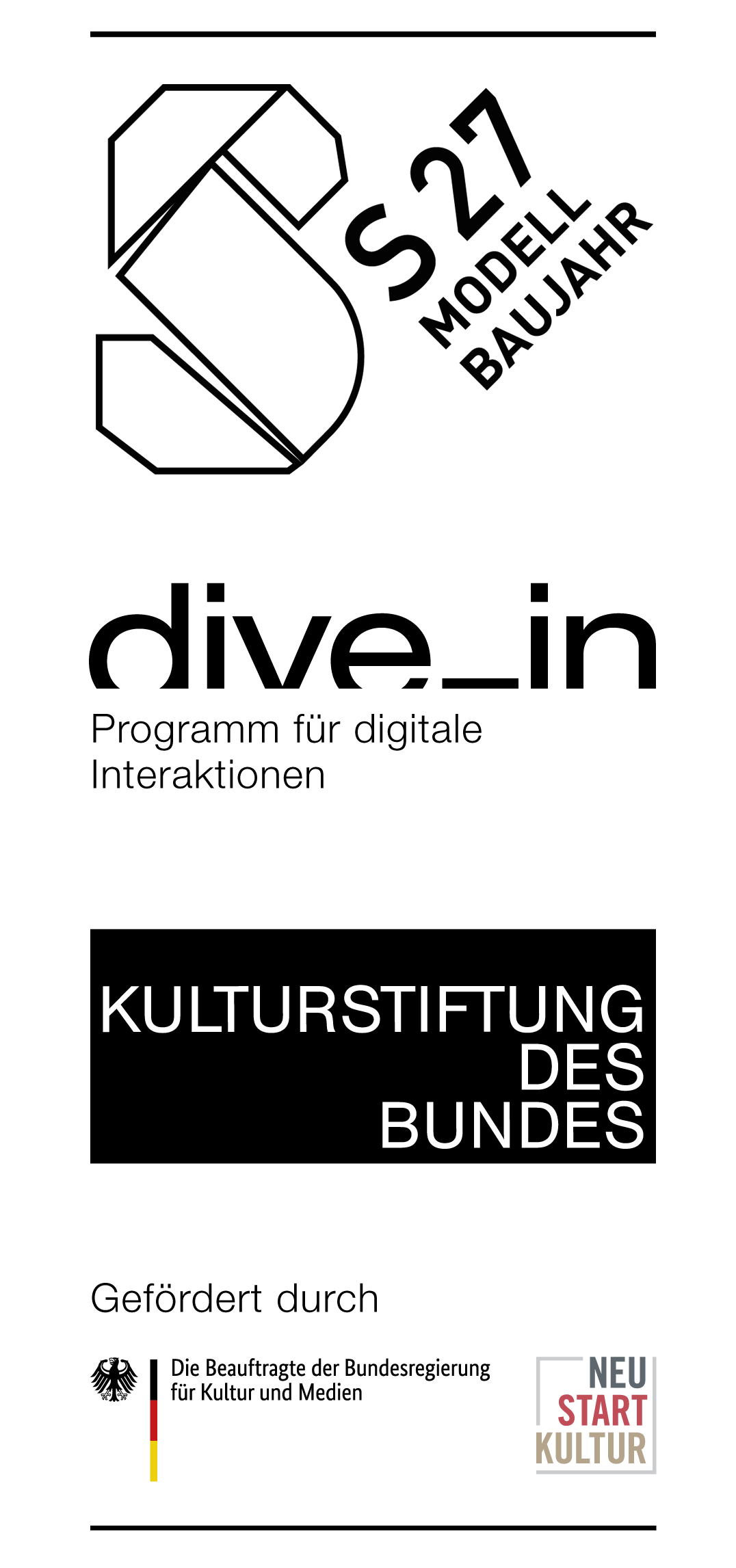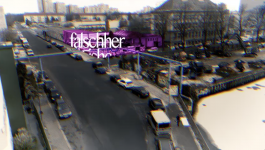Below and Beyond
Von Weltmeeren bis Welträumen /
From oceans to outer space
Die von dem Berliner Kurator Lukas Feireiss organisierte Gesprächsreihe versteht sich als eine Plattform für diskursive Begegnungen, die neben der Verhandlung von Gegenwärtigem, auch ein Ort der Spekulation zum Verhältnis von Weltmeer, Welt und Weltraum darstellt. Wie sieht es aus, das Zusammenleben und Miteinander der Zukunft auf unserem Planeten? Wie könnte unser Verständnis der Tiefsee und der Erde dazu beitragen, die Geheimnisse des Weltraums zu entschlüsseln? Und bedeutet es, dass wir mit jedem Schritt bei der Erforschung anderer Welten auch ein wenig mehr über einige der unerforschten Teile unseres eigenen blauen Planeten erfahren?
Seit jeher besteht eine enge Verbindung zwischen der Erforschung der Ozeane und des Weltraums. Bereits die frühen Zivilisationen glaubten, dass der Ozean und der Sternenhimmel untrennbar miteinander verbunden sind. Im Zeitalter der Entdeckungen stellte der Ozean das letzte Unbekannte dar, dessen Wegweiser der Himmel war. Auch heute sind es wieder „Raumschiffe“ welche die unendlichen Weiten des Kosmos erkunden, obwohl wir tatsächlich mehr über die Oberfläche des Mars und des Mondes wissen als über den Meeresboden unseres eigenen Planeten.
Mit all diesem und mehr beschäftigt sich die dreiteilige Gesprächsreihe diesen Herbst in Berlin im Rahmen des „Modellbaujahres“ der Schlesische 27 - Kunst und Bildung live im Falscher Fisch in Neukölln und online, zu denen neben fachübergreifenden Positionen aus Kunst und Wissenschaft auch interessierte Bürgerinnen und Bürger eingeladen sind mit zu diskutieren.
The series of talks organised by Berlin curator Lukas Feireiss sees itself as a platform for discursive encounters. In addition to negotiating the present, it is also a place for speculating on the relationship between the ocean, the world and the outer space. What do future coexistence and togetherness on our planet look like? How might our understanding of the deep sea and the earth contribute to unlocking the secrets of space? And does it mean that with every step we take in exploring other worlds, we also learn a little more about some of the unexplored parts of our own blue planet?
Since time immemorial, there has been a close connection between the exploration of the oceans and outer space. Early civilisations believed that the ocean and the starry sky were inextricably linked. In the Age of Discovery, the ocean represented the last unknown, whose signpost was the sky. Today, it is once again "spaceships" that explore the infinite vastness of the cosmos, although we actually know more about the surface of Mars and the moon than we do about the ocean floor of our own planet.
All this and more will be addressed in the three-part series of talks this autumn in Berlin as part of the "Model Building Year" of Schlesische 27 - Arts and Education live at Falscher Fisch in Neukölln and online. Interested citizens are invited to join in the discussion, alongside interdisciplinary guests from art and science.
Deep Dive
Donnerstag, 08. September 2022, 18:00 Uhr/
Thursday, 8 September 2022, 6:00 p.m.
Den inhaltlichen Auftakt der Veranstaltungsreihe bildet eine Auseinandersetzung mit den Weltmeeren als ältesten Lebensraum und Ursprung allen Lebens auf unserem Planeten. Die Erde selbst ist ein Wasserplanet: Knapp drei Viertel der Oberfläche werden von den Weltmeeren bedeckt und die Ozeane sind das größte Ökosystem der Welt. Vor diesem Hintergrund gilt es den Lebensraum Meer im wahrsten Sinne des Wortes auf den Grund zu gehen.
Mit: Dr. Phil. Ineke Phaf-Rheinberger, unabhängige Wissenschaftlerin
Ineke Phaf-Rheinberger hat an verschiedenen Universitäten in Lateinamerika, USA, und Deutschland gelehrt. Zu ihren Forschungsschwerpunkten gehört die Kulturgeschichte Lateinamerikas, der Karibik und Afrikas. Sie ist Autorin und Herausgeberin zahlreicher Veröffentlichungen zu Meeresthemen wie literarischen Narrativen des Ozeans als sozio-kulturellen Bedeutungsraum wie z.B. Beyond the Line. Cultural Narratives of the Southern Oceans (2014) und Modern Slavery and Water Spirituality. A Critical Debate in Africa and Latin America (2017).
.
The series of events begins with an examination of the world's oceans as the oldest habitat and the origin of all life on our planet. The Earth itself is a water planet: almost three quarters of the surface are covered by oceans and oceans are the largest ecosystem in the world. Against this background, it is important to get to the bottom of the ocean habitat in the truest sense of the word.
With: Dr. Phil. Ineke Phaf-Rheinberger, independent researcher
Ineke Phaf-Rheinberger has taught at various universities in Latin America, USA, and Germany. Her research interests include the cultural history of Latin America, the Caribbean, and Africa. She is the author and editor of numerous publications on marine themes s well as literary narratives of the ocean as a socio-cultural space of meaning, such as Beyond the Line. Cultural Narratives of the Southern Oceans (2014) and Modern Slavery and Water Spirituality. A Critical Debate in Africa and Latin America (2017).
Common Ground
Donnerstag, 29. September, 18:00 Uhr /
Thursday, 29 September, 6:00 p.m.
Die zweite Veranstaltung widmet sich der Erde – Ursprungsort und Heimat aller bislang bekannten Lebewesen. Pflanzen, Tiere und Menschen leben – nur durch die dünne Schicht der Erdatmosphäre geschützt – gemeinsam auf diesem Planeten. Dabei sind alle Lebewesen voneinander und von den begrenzten Vorräten der Erde abhängig. Das Zusammenleben aller Lebewesen auf der Erde und die Stellung des Menschen zur Natur und im Kosmos gilt es zu hinterfragen.
Mit:
Martina Kolarek, Biochemikerin, Bodenwissenschaftlerin, Autorin und Künstlerin
Marina Kolarek ist Expertin für landwirtschaftliche Bodenkunde und nachhaltige Ernährung. Seit 2010 setzt sie erfolgreich gemeinschaftliche Kompostierungsprozesse um. DIE BODEN SCHAFFT ist eine von Kolarek gegründete Initiative für eine neue Bodenkunde und -kultur in Berlin. Außerdem ist sie beim NABU Naturschutzbund Deutschland e.V. für den Bereich Bioökonomie zuständig.
die-boden-schafft.de
Luïza Luz, Künstler*in, Pädagog*in und Klimaaktivist*in
Luïza Luz setzt sich mit der Binarität Natur/Kultur in Sprache, Identität und Institutionen auseinander. Luzs Poetik entwickelt sich aus geschriebenen und gesprochenen Worten, die zu Bildern, Vorträgen, Klangperformances, Installationen und kollaborativen (Un-)Lernorten werden. Dabei sind Erde und Samen als materielle und lebendige Wesenheiten in dieser Praxis immer präsent.
luisaluz.co
The second event is dedicated to the Earth - the place of origin and home of all living creatures known to date. Plants, animals and humans live together on this planet - protected only by the thin layer of the Earth's atmosphere. All living beings are dependent on each other and on the limited resources of the Earth. The coexistence of all living beings on Earth and the position of humans in relation to nature and the cosmos must be questioned.
With:
Martina Kolarek, biochemist, soil scientist and terrestrial artist
Marina Kolarek is expert in agricultural soil science and sustainable nutrition. Since 2010, she has been successfully implementing community composting processes. Die Boden Schafft is an initiative for a new soil science and culture in Berlin, founded by Kolarek. She is also responsible for the field of bioeconomy at NABU Naturschutzbund Deutschland e.V.
die-boden-schafft.de
Luïza Luz, artist, educator and climate activist
Luïza Luz explores the nature/culture binary in language, identity and institutions. Luz's poetics evolve from written and spoken words that become images, lectures, sound performances, installations and collaborative (un)learning spaces. In this practice, earth and seeds are always present as material and living entities.
luisaluz.co
Outer Space
Donnerstag, 27. Oktober, 18:00 Uhr /
Thursday, 27 October, 6:00 p.m.
Die Abschlussveranstaltung widmet sich den unendlichen Weiten des Weltraums. Seit Jahrhunderten sind die Menschen fasziniert von der Raumfahrt und der Reise zu anderen Planeten. Lange bevor Ingenieure und Wissenschaftler ernst machten mit Reisen im Weltraum, hatten Künstler und Schriftsteller sie bereits in nahezu all ihren Aspekten erkundet. Der Weltraum dient als ultimative Projektionsfläche für Flüge der Fantasie schlechthin, aber auch als Testflug für Ideen die Realität werden.
Mit: Nahum, Künstler, Musiker, Performer
Nahums Arbeit kombiniert Weltraumtechnologien, Illusionismus und Hypnose, um alternative und extreme Perspektiven der menschlichen Erfahrung zu schaffen. Er ist Gründungsdirektor des KOSMICA-Instituts und leitete das Technical Activities Committee for the Cultural Utilization of Space (ITACCUS) der International Astronaitical Federation (IAF).
nahum.xyz
Diese Veranstaltung findet auf Englisch statt.
The final event is dedicated to the infinite vastness of the universe. For centuries, people have been fascinated by space travel and the journey to other planets. Long before engineers and scientists got serious about travelling in space, artists and writers had already explored it in almost all its aspects. Space serves as the ultimate projection screen for flights of fantasy par excellence, but also as a test flight for ideas that become reality.
With: Nahum, artist, musician, performer
Nahum's work combines space technologies, illusionism and hypnosis to create alternative and extreme perspectives on the human experience. He is the founding director of the KOSMICA Institute and chaired the Technical Activities Committee for the Cultural Utilization of Space (ITACCUS) of the International Astronaitical Federation (IAF).
nahum.xyz
This event is held in English.

